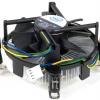What do AMD CPUs have over Intel?
-
Topics
-
1
-
0
-
0
-
cheersalt1 ·
Posted in Cases and Mods0 -
ProtonicGamerz ·
Posted in Graphics Cards1 -
ArcticArua ·
Posted in Troubleshooting0 -
4
-
hunnu ·
Posted in Graphics Cards0 -
2
-
3
-
-
play_circle_filled

Latest From Linus Tech Tips:
Why Do Youtubers Keep Destroying Companies - WAN Show April 19, 2024















Create an account or sign in to comment
You need to be a member in order to leave a comment
Create an account
Sign up for a new account in our community. It's easy!
Register a new accountSign in
Already have an account? Sign in here.
Sign In Now